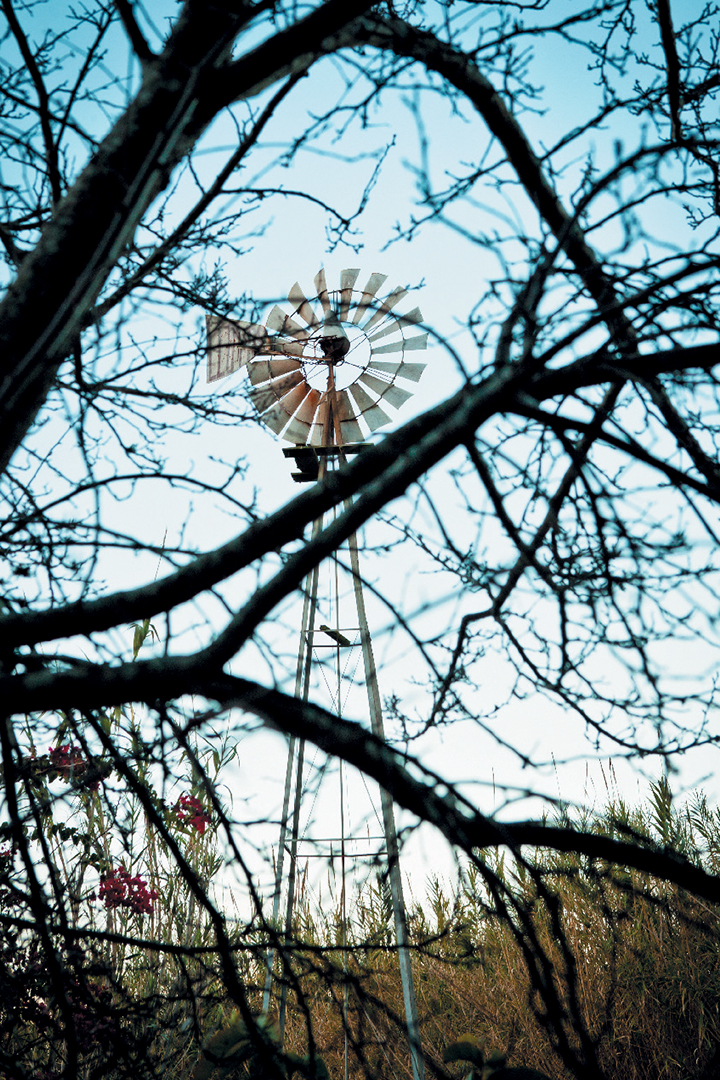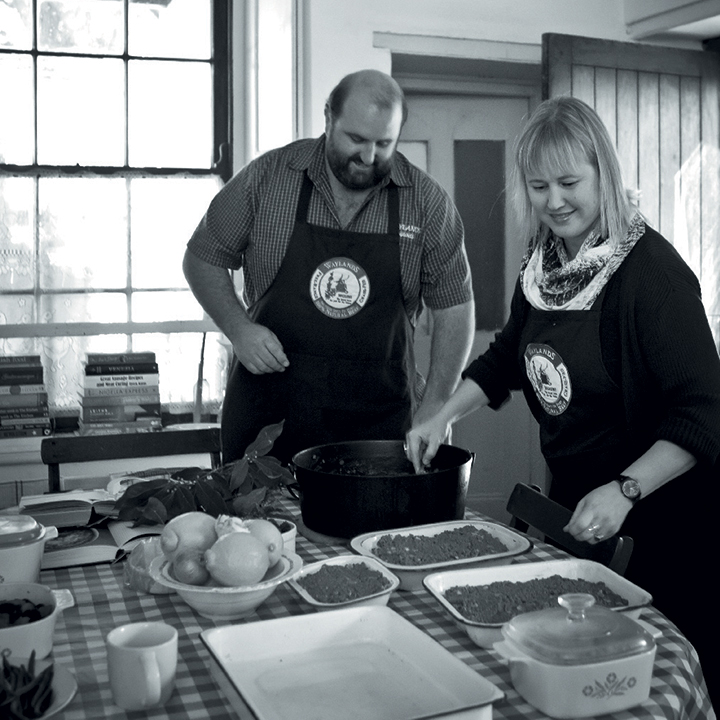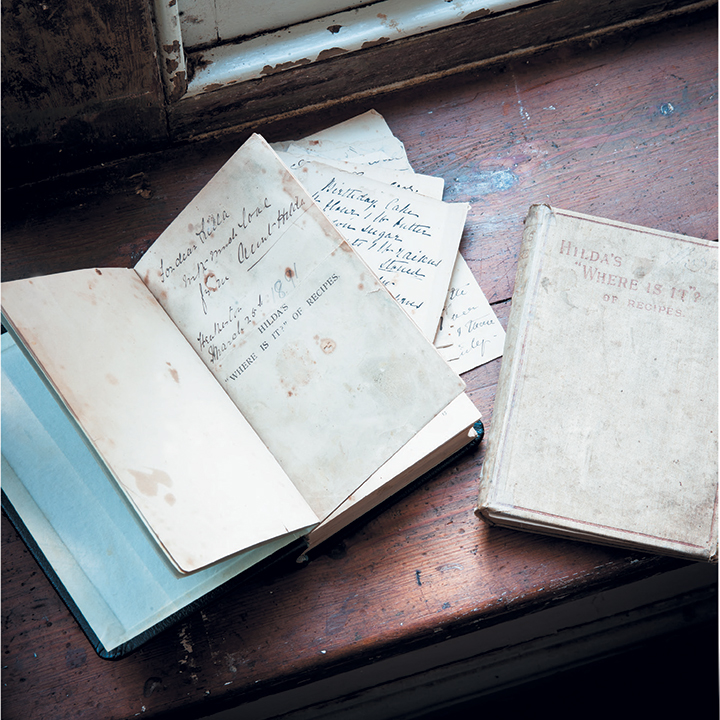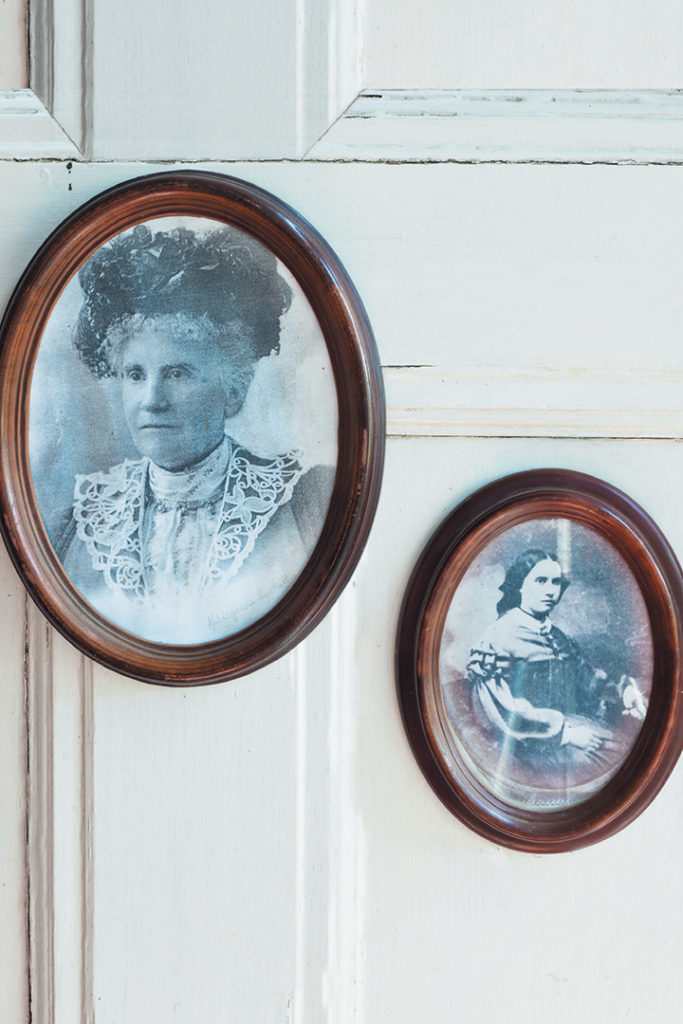We pay a visit to Darling’s Waylands Farm, where many of The delicious local dishes pay homage to Hildagonda Duckitt, the woman who wrote South Africa’s first cookbook.
Written by Johan Liebenberg
Photographs by Bruce Tuck
Recipes by Michael and Lizette Duckitt
The Duckitt family tree reads like a who’s who of the old Cape aristocracy. They are names one learnt about at school, names that have become intertwined with the Duckitts through marriage: the Melcks, the Smutses (ancestors of Jan Smuts, prime minister of South Africa) and the Cloetes of Alphen Farm.

But the one I am most eager to learn more about is Hildagonda Duckitt, born in 1839, who grew up on the farm Groote Post where she entertained lavishly, hosting festivities, picnics, hunts and dances. But she became most famous for having written South Africa’s first cookbook shortly before the turn of the 19th century. Photographs of her reveal a woman with prominent features that suggest a strong will. But she did not only have a strong will (she practically ran Groote Post single-handedly), she also had firm principles.
For instance, when she disapproved of a bride, whom one of her relatives was marrying, she moved off Groote Post and settled in Wynberg at St Lucia Cottage. Here, in Wynberg, she continued to entertain, to write and to cook.
Her guest list included some illustrious names, naval officers, aristocrats and even royalty – Princess Helena of the United Kingdom (daughter of Queen Victoria, Princess Helena became Princess Christian of Schleswig-Holstein by marriage) and her daughter Princess Marie Louise.
Hildagonda remained single, though she did get engaged to one Lieutenant William Brown, but he reneged on his promise to marry her and it was only on her deathbed that she confessed he had ‘spoilt her life’. Spoilt life or not, her culinary legacy lives on. Her books, such as Diary of a Cape Housekeeper, have today become valuable Africana.
At a dinner in Cape Town recently, I found myself sitting across from the former ambassador to the UN. When the talk got around to food, he enthused about the quality of boerewors and other meat products sold at Market at The Palms in Woodstock. My interest piqued, I decided to visit and found the stall where the ‘excellent meat products’ were being sold. A bearded gentleman with heavy eyebrows greeted me with a broad smile. His name is Michael Duckitt. And, as it turns out, his great, great aunt was Hildagonda Duckitt.

Today, Michael farms on Waylands, one of the original farms owned by the Duckitts and not far from Groote Post, just outside Darling on the West Coast, and an hour’s drive from Cape Town. The rambling old farmhouse possesses a kind of fading graciousness, a patina that dates back two centuries. I warmed towards it when I first saw it. I am tired of money overgentrifying everything with character, thereby robbing it of the very qualities that gave it character in the first place.
Seated on the broad voorstoep, bathed in mild winter sunshine after weeks of punishing storms and freezing temperatures, I ask Michael about his famous great aunt: “Aunt Hilda was a very dynamic woman, you know. She was famous for her books, as a wild-flower enthusiast and her love of the veldt but, to the family, she was seen as the matriarch. She would do anything for the family, from making dresses – she sewed very well – to organising big family gatherings, something she was adept at.”

Even when the conversation turns to Michael’s Nguni breed, the spirit of Hildagonda Duckitt seems to permeate the conversation. Was Hildagonda an early conservationist? Perhaps. At any rate, part of the Duckitt’s legacy in Darling is that they started the Darling Flower Show back in 1917.
According to Michael, “The Ngunis form an invaluable part of the Waylands Wildflower Reserve due to their grazing habits. They enhance the natural fynbos by removing the old growth and allowing the new growth to flourish.”
Michael becomes animated when discussing his beloved Nguni herds. “No drugs means no antibiotics and no steroids and my herds are grass fed.” He got to rearing them quite by accident, you could say, after a farmer hired a piece of pasture for his Nguni cattle. The origins of this breed… well, who can tell for sure but it is profoundly interesting because it is a hybrid of zebu cattle from India and taurine cattle from Europe and the breed may be as old as 8 000 years. At any rate, they gradually migrated south from Egypt where they formed part of the Nguni people’s and Khoikhoi’s herds who, it is told, also rode them into battle, using them as war horses.
The Duckitts have always been a gentle people. Their farm workers remain in their houses on the farm, generations of them, even after retirement. This gentleness is extended today to land and livestock where the herds are managed with great care, one of the reasons why the herd does not require antibiotics or steroids.
Perhaps Hildagonda Duckitt has been incarnated in the blonde, effervescent Lizette, Michael’s partner of many years. She attained her cooking skills under Margot Janse at Le Quartier Français in Franschhoek. “It is a pleasure using our Nguni beef as the quality comes through in the cooked product,” Lizette beams. “You can see and taste the difference.”
She adds: “Many of Aunt Hilda’s recipes are still in common use today, you know?” Aunt Hilda. (As if she was still alive only a few years ago.) Over lunch, consisting of a delicious bobotie made by Lizette, according to Hildagonda’s recipe, I ask Michael about National Braai Day. Michael reveals that he renders sheep fat in which to cook his beef steaks, using a medium heat in a cast-iron pot. Grass-fed fat is different from other fats.
As he explains, I am soon lost. But who cares. You don’t have to understand everything to know it’s good.
Waylands Farm, Darling, Western Cape. waylands.co.za


